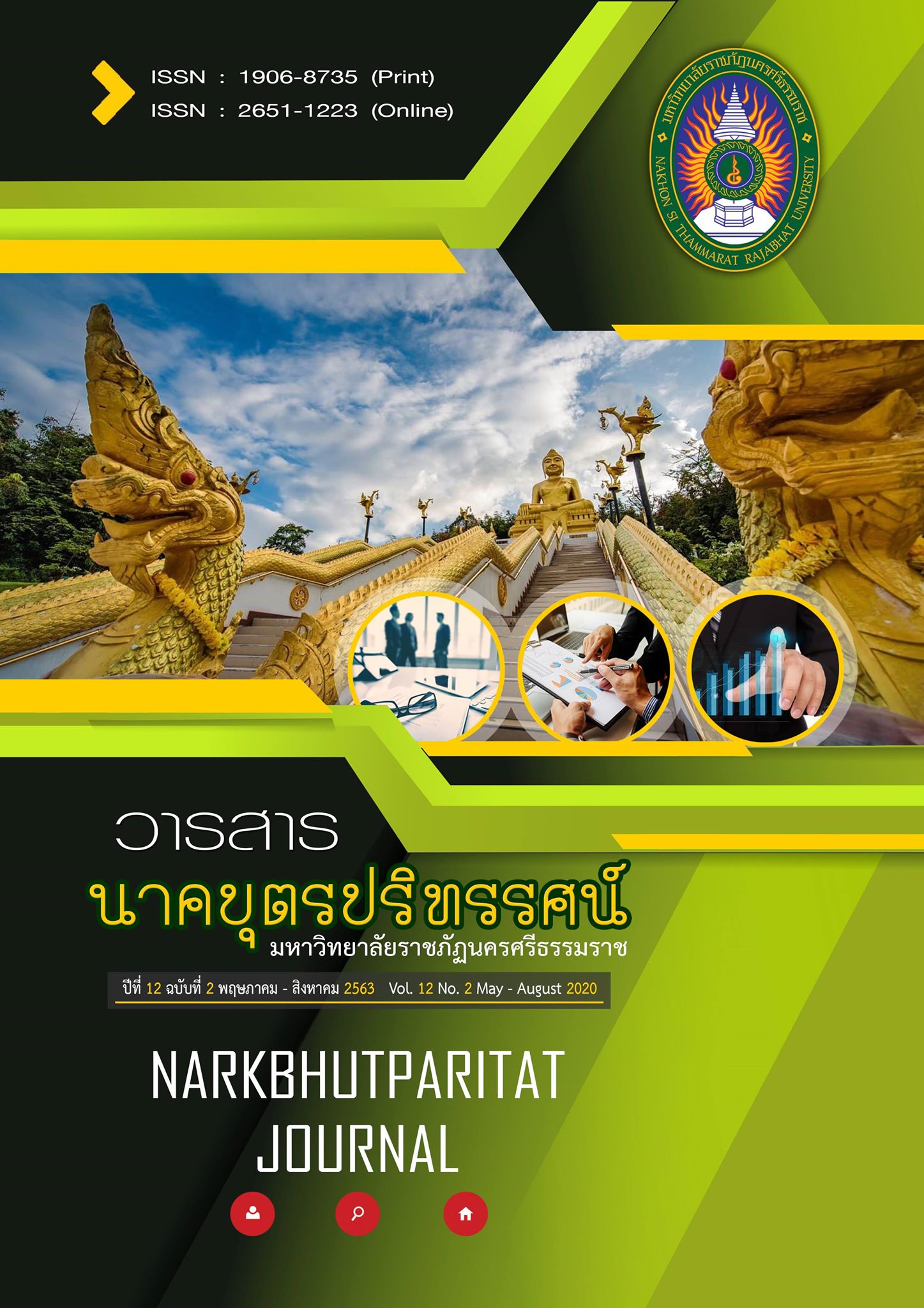การจัดการเรียนรู้ผ่านระบบการจัดการเรียนรู้ออนไลน์ (EDU-Learning) ในรายวิชาเคมีวิเคราะห์Learning Management Using e-Learning (EDU-Learning) in the Analytical Chemistry Course
Main Article Content
บทคัดย่อ
บทคัดย่อ
งานวิจัยนี้มีวัตถุประสงค์เพื่อ 1) เพื่อศึกษาผลสัมฤทธิ์ทางการเรียนวิชาเคมีวิเคราะห์ ที่สอนโดยใช้ ระบบ EDU-Learning 2) เพื่อศึกษาความพึงพอใจต่อการเรียนการสอนโดยการใช้ระบบ EDU-Learning โดยมีกลุ่มประชากรเป้าหมายคือ นักศึกษาที่ลงทะเบียนเรียนรายวิชาเคมีวิเคราะห์จำนวน 50 คน เครื่องมือที่ใช้ในงานวิจัยนี้ประกอบด้วย แบบทดสอบย่อย (E-quiz) การบ้าน ใบงานเดี่ยว ใบงานคู่ และแบบประเมินความพึงพอใจของนักศึกษาผ่านการเรียนการสอนโดยใช้ระบบ EDU-learning ผลการศึกษาพบว่า การจัดการเรียนการสอนโดยใช้ระบบ EDU-learning ช่วยเสริมสร้างความรับผิดชอบให้แก่นักศึกษา เนื่องจากในการทำแบบทดสอบ การส่งงาน ซึ่งถูกกำหนดโดยเวลาที่ตั้งไว้ในระบบ โดยผู้สอนได้แจ้งต่อนักศึกษาล่วงหน้า การมีแบบทดสอบย่อยทำให้นักศึกษาได้ทบทวนและฝึกฝนก่อนที่จะทำการสอบจริง ผลสัมฤทธิ์ทางการเรียนจากการทำแบบทดสอบ (E-quiz) นักศึกษาส่วนใหญ่จำนวน 27 คน ได้คะแนนเฉลี่ย อยู่ในระดับดี และมีนักศึกษา 5 คน ที่ได้คะแนนเฉลี่ยในระดับดีมาก จากการประเมินความพึงพอใจของนักศึกษาในการเรียนการสอนโดยใช้ระบบ EDU-learning ในด้านการเข้าใช้ระบบ EDU-learning, ด้านการส่งเสริมการเรียนการสอน ด้านเนื้อหาบทเรียน และด้านการทำแบบทดสอบ (E-quiz) พบว่า มีคะแนนเฉลี่ยเท่ากับ 4.08, 4.19, 4.34 และ 4.13 ตามลำดับ ซึ่งอยู่ในระดับดีทั้ง 4 ด้าน อีกทั้งการเรียนการสอนโดยใช้ระบบ EDU-learning ช่วยส่งเสริมทักษะสำคัญของผู้เรียนในศตวรรษที่ 21
Article Details
เอกสารอ้างอิง
Anuntaseree, S. (2004). E-learning : Virtual Classroom. PSU Medical Education Resources, Faculty of Medicine, Songkhla: Prince of Songkhla University. (in Thai)
Ardseenark, T. (2005). A Comparative of Learning Achievement between e-Learning Method and Conventional Method on Information Technology for Learning, Rajabhat Institute Curriculum B.E. 2542. Bangkok: Industrial Education in Computer Technology, King Mongkut’s Institute of Technology North Bangkok. (in Thai)
Jermtaisong, R. (2017). Development of e-Learning Courses for Learning Management and Classroom Management. Bangkok: Veridian E-Journal, Silpakorn University. 10(3), 1027-1038. (in Thai)
Knowles, M.S. (1975). Self-Directed Learning : A Guide For Learners and Teachers. Chicago: Follett.
Pongpatrakant, P. (2013). A Study of Opinion and Satisfaction of e-Learning in English for Computer Science Course. Research and Development Journal, Loei: Loei Rajaphat University, 8(25), 73-84. (in Thai)
Sikkhamarn, K. (2011). A Study of Achievement in Learning Subject: Business English Communication Teaching by E-Leaning. Bangkok: Sripatum University, Faculty of Liberal Arts. (in Thai)
Sombutwong, W. (2006). A Study of Learning Achievement and The Satisfaction of Students in Mathayomsuksa IV by using E–Learning. Bangkok: Srinakharinwirot University,
Graduate School. (in Thai)
Thanormchayathawat, B., Vanitsuppavong, P., Niemted, W. and Portjanatanti, N. (2016). 21st Century Skills: A Challenge for Student Development. The Southern College Network Journal of Nursing and Public Health. 3(2), 208-222. (in Thai)


